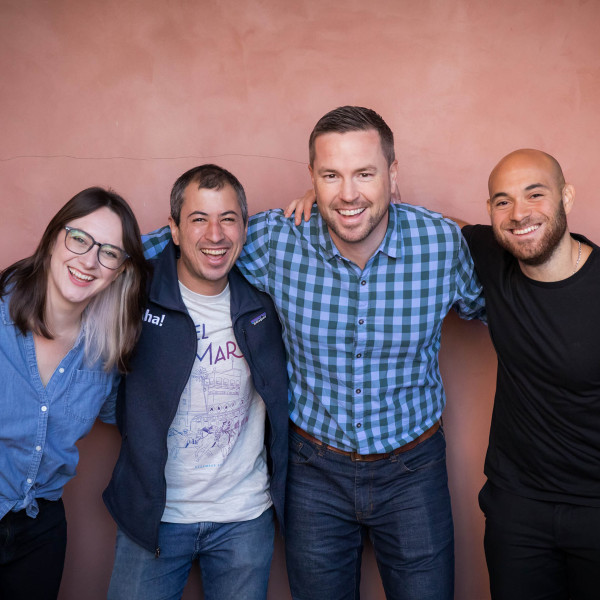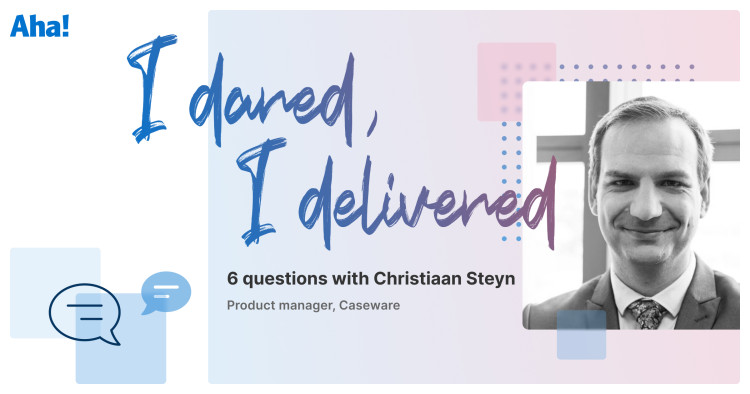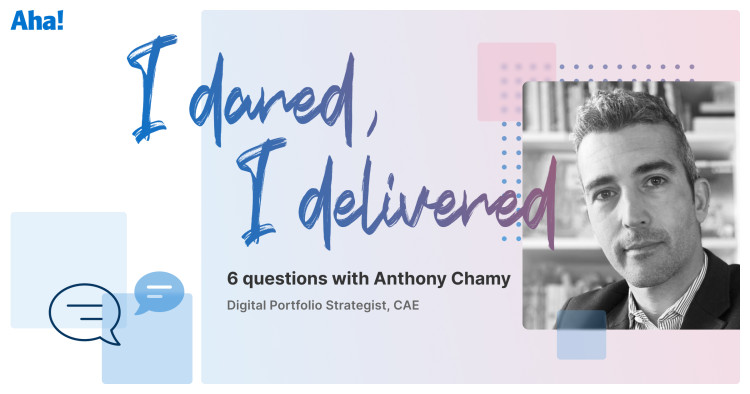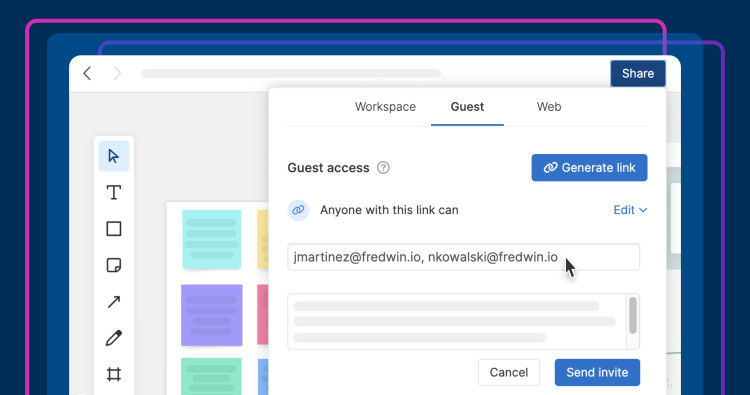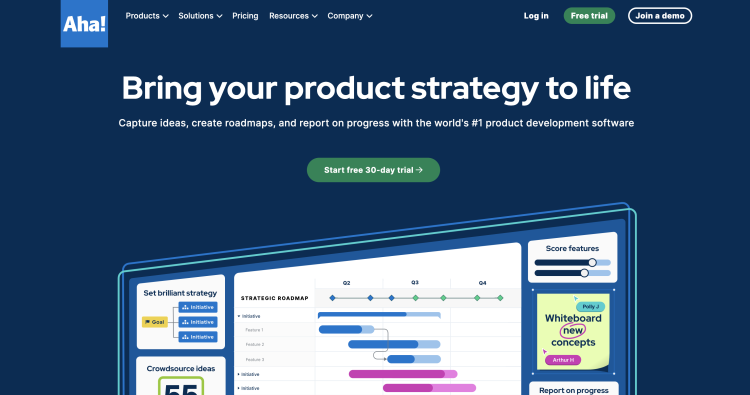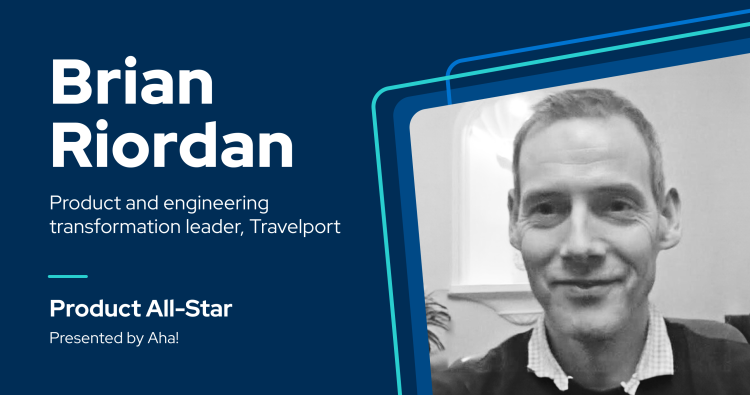
Product All-Star: 6 questions with Brian Riordan
Building products is an adventure. That is what makes it the best job in the world. But this role is not for everyone — true product success requires decisive action, continuous effort, and the relentless pursuit of value.
We have the honor of being connected to companies and product experts who go boldly and bravely. And we are asking folks to share their knowledge with you in the hopes it will inspire you in your own product career.
Brian Riordan is the Senior Director of Product and Engineering Transformation at Travelport, a worldwide travel retail platform. Based in Dublin, Ireland, Brian established the company's product development playbook. He ensures different product roles are clear across the organization — helping product builders build the competence and confidence they need to successfully deliver against their roadmaps.
Editor's note: Brian Riordan recently moved on from Travelport and is exploring his next chapter. This interview took place beforehand.
What was your first product role?
"I began working in product development at Accenture in the '90s and early 2000s. I came in as an engineer and wrote software, but I began managing cross-functional teams and shifted into a product owner role later on.
This was all before product management was clearly defined in the workplace. So in these early days, I did a little bit of everything — first at Accenture and then at Microsoft. I developed deep experience in product management and engineering given that I played in both spaces before they had definitive labels and separate responsibilities.
In my current role at Travelport, I make sure that all our product builders start strong at the company and continue to feel confident in their contributions. I help them maintain a clear understanding of their responsibilities, how to perform their roles, and how to leverage all the technology that has become critical in our product development lifecycle."
What are the most important traits a product builder should have?
"The most important trait for a product builder has to be an interest in developing industry knowledge. That happens by following industry news, attending events, and talking to customers — a lot.
"As a product manager, your job is reliant on customer insights. If you are too busy to meet customers, you are doing something wrong."
As you gain that knowledge, build experience, and develop network connections, you can confidently engage with all kinds of customers. Understanding your customers allows you to better field their requests and say no when you need to."
What would you recommend not to do when starting out in a product career?
"Don't say yes to things just because the customer wants them. If our product managers were simply order takers, we would end up with disconnected versions of products for different customer groups (or even individuals). This fragmented state is no way to run a roadmap or try to stay aligned with a strategy. And if you always say yes but do not follow through, customer trust and confidence in your product will erode.
"It all comes back to establishing confidence and competence in the role — which can only happen through knowledge and experience. So don't shy away from it."
If you have industry knowledge and experience, you are able to take a position confidently. You can explain to a customer who wants ten new product features that five are already on the roadmap, two will be discussed internally to ensure they align with the platform, and three are not going to be explored — and here is why. Ideally, a conversation like this is even more valuable to a customer because they are learning and gaining trust in your capabilities as a product manager."
How do you stay motivated when complex challenges arise during product development?
"I've touched on this a bit, but part of gaining knowledge is understanding how to use the tools available at your company and the data those tools provide your team. I am very data-oriented, and that is what I fall back on when challenges pop up. I use data to see how we are doing in terms of release work and progress — connecting customer understanding to live benefits in our product. This helps me mitigate potential risks. It also steers my focus. I engage with teams all over the organization, and our roadmapping data tells me where people are finding success and where they might need some additional support."
What is the most exciting aspect of your current role?
"I enjoy visualizing all the work we plan to accomplish. It's one thing to assemble a few slides highlighting your strategy, but I like taking those slides and capturing the actual work. For us, that looks like building epics and initiatives, then dividing them into releases and features and visualizing that on a roadmap. Otherwise, no one understands what needs to happen to reach those goals in the slideshow."
"A roadmap is the common language we use here; it helps everyone understand what they are working on and why it matters."
What will change most about product development in the next decade?
"Every company is working hard to understand its market, shape something of value based on market needs, and then put that in customers' hands. The companies that find success in the future will be those that can replicate this process at scale. And just like building a car, you will have to have an assembly line — meaning a proper order of operations and role clarity.
Someone who feels empowered but doesn't understand how to succeed in their job is going to be unmotivated very quickly. That is because they don't know what 'good' is supposed to look like. Think beyond the trends, because essential skills do not change. Focus on improving those skills across your team so you can scale faster, and you'll be in good standing."
Read more of the Product All-Star series.
Know an inspiring product builder? Nominate them to be featured in an upcoming post. They simply need to be doing quality work and using Aha! software.
